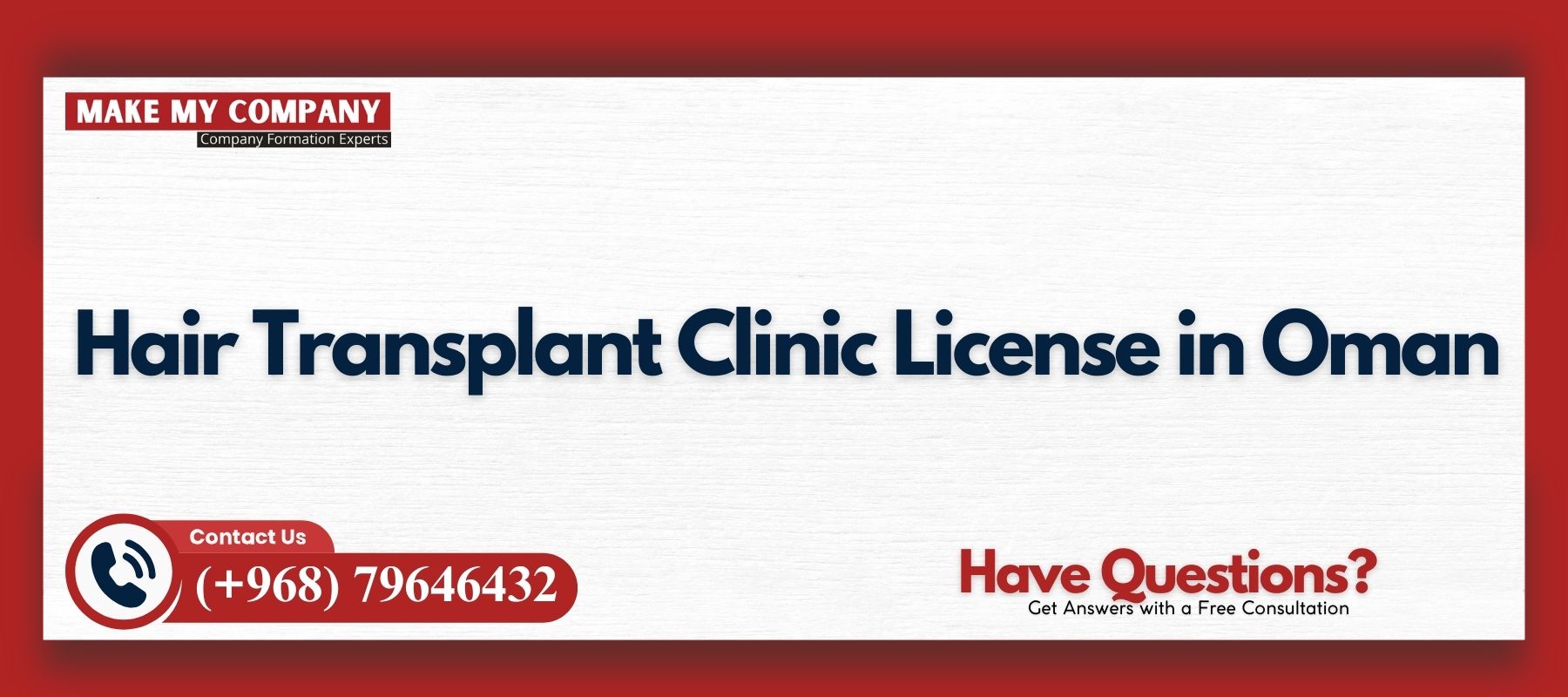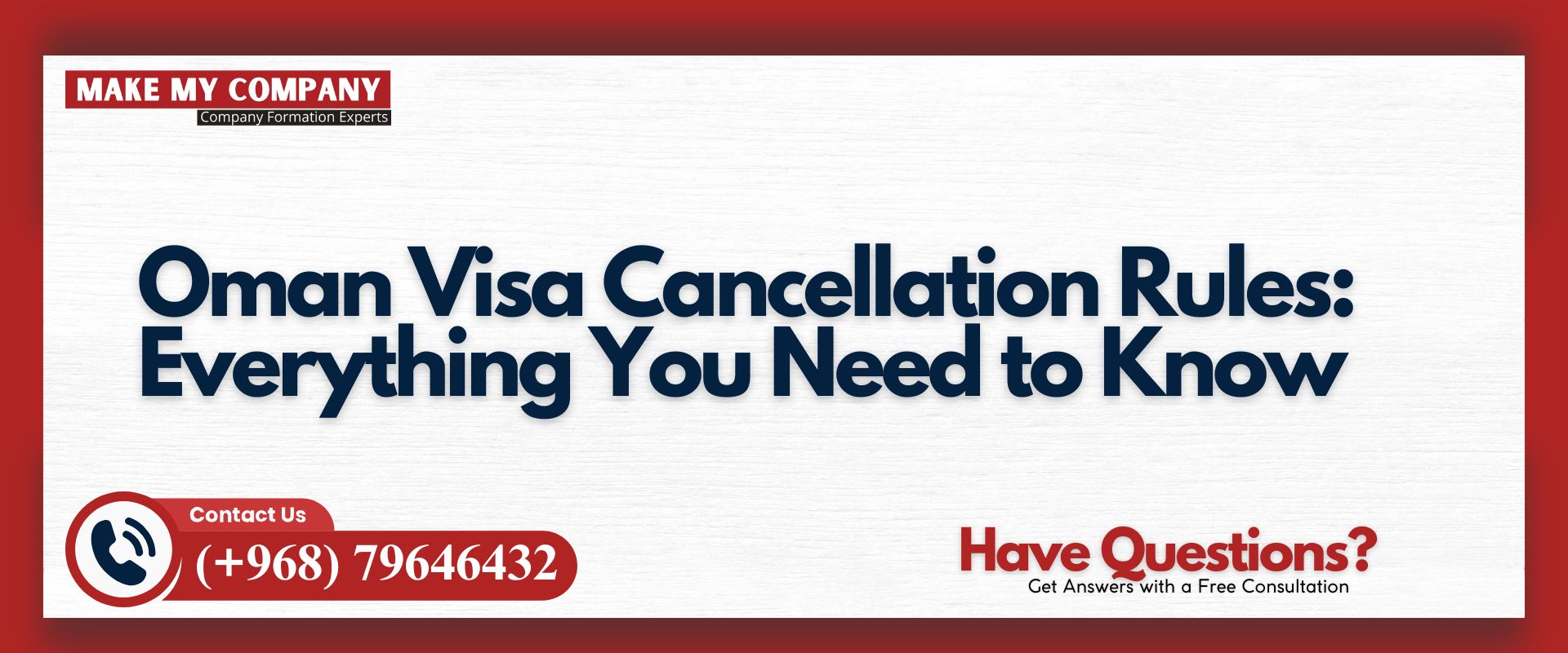Running a hair transplant clinic in Oman requires strict compliance with medical licensing, facility standards, and professional regulations. Hair transplantation is treated as a surgical cosmetic medical service, which means clinics must meet higher regulatory and safety requirements compared to general medical practices.
This guide explains the complete process of obtaining a hair transplant clinic license in Oman, including licensing authorities, doctor qualifications, facility requirements, inspections, costs, renewal rules, and ongoing compliance. It is intended for surgeons, medical investors, and healthcare entrepreneurs planning to operate in Muscat or other major cities in Oman.
Table of Contents
Hair Transplant Clinic Licensing Framework in Oman
Hair transplant clinics fall under regulated medical facilities and must operate within Oman’s healthcare licensing system.
Regulatory Classification of Hair Transplant Clinics
A hair transplant clinic is classified as a cosmetic surgical medical facility. This classification applies because procedures involve anaesthesia, surgical intervention, and post-operative medical care.
Primary Licensing Authority
The Ministry of Health (MOH) is the sole authority responsible for licensing, inspecting, and regulating hair transplant clinics. No clinic can operate legally without written approval and licensing from the Ministry of Health (MOH).
Role of the Ministry of Health in Clinic Licensing
The licensing process focuses on patient safety, medical standards, and professional accountability.
Facility and Infrastructure Review
The Ministry of Health (MOH) evaluates clinic layout, surgical rooms, sterilisation areas, recovery rooms, ventilation systems, and waste disposal arrangements before granting approval.
Medical and Ethical Compliance
The authority ensures that all procedures follow approved medical protocols, infection control standards, and patient rights regulations.
Practitioner Qualification Requirements for Hair Transplant Clinics
A clinic license is only granted if qualified and registered medical professionals are appointed.
Surgeon Licensing and Medical Registration
The lead surgeon must hold a recognised medical degree and be registered with the Oman Medical Speciality Board or the designated medical licensing body approved by the Ministry of Health (MOH). Board certification in dermatology or plastic surgery, along with formal training in hair restoration techniques, is required.
Medical and Support Staff Requirements
Registered nurses, surgical assistants, and technicians must hold valid licenses approved by the Ministry of Health (MOH). Staff must also be trained in sterile procedures, patient care, and cosmetic surgery assistance.
Medical Facility Licensing Process for Hair Transplant Clinics
The licensing process follows structured medical facility approval steps.
Clinic Premises and Layout Approval
Applicants must submit detailed floor plans showing consultation rooms, surgical suites, sterilisation rooms, recovery areas, storage, and patient waiting spaces. These plans are reviewed and inspected by the Ministry of Health (MOH).
Submission of Staff Credentials
All medical staff credentials, licenses, and employment contracts must be submitted for verification. The clinic cannot proceed without approved medical professionals on record.
License Application and Fee Payment
Once infrastructure and staffing are approved, the clinic applies for its operational license through the Ministry of Health (MOH) licensing system and pays the required government fees.
Hair Transplant Clinic License Cost in Oman
Licensing costs vary depending on location, clinic size, and service scope.
Government Fees and Official Charges
Fees typically include inspection charges, initial license issuance, and annual renewal fees. Cosmetic surgical clinics fall into a mid-to-high licensing category due to higher regulatory oversight.
Equipment and Compliance Investment
Clinics must invest in approved surgical chairs, microscopes, graft storage units, sterilisation equipment, emergency backup systems, and medical waste management solutions. These costs form a major part of the initial setup budget.
MOH Inspection Requirements for Hair Transplant Clinics
Passing inspection is mandatory before starting operations.
Surgical Suite and Sterilisation Standards
Inspectors review autoclave logs, instrument sterilisation protocols, disposable usage, protective equipment, and infection control systems to ensure patient safety.
Patient Records and Clinical Documentation
Clinics must maintain accurate patient records, treatment histories, consent forms, and follow-up care documentation in line with Ministry of Health (MOH) regulations.
Operational Regulations for Hair Transplant Centres
Licensed clinics must follow strict operational rules.
Patient Consent and Legal Protection
Patients must receive clear explanations of procedures, risks, and recovery expectations. Written consent must be maintained in both Arabic and English to meet legal requirements.
Medication Handling and Graft Storage
Anaesthetics, topical medications, and medical consumables must be sourced, stored, and dispensed according to Ministry of Health (MOH) guidelines, including temperature control and inventory tracking.
License Renewal and Ongoing Compliance
Licensing does not end after approval. Continuous compliance is required.
Annual License Renewal Process
Hair transplant clinic licenses must be renewed annually through the Ministry of Health (MOH). Renewal includes document verification, updated staff licenses, and facility re-inspection if required.
Continuous Professional Development
Medical professionals must complete ongoing training in hair restoration techniques, infection control, and patient safety. Proof of training may be requested during renewal.
Advantages of Operating a Licensed Hair Transplant Clinic in Oman
Licensing offers both legal and commercial benefits.
Patient Trust and Market Credibility
Patients actively seek MOH-licensed clinics for surgical cosmetic procedures. A licensed clinic builds confidence and a long-term reputation.
Legal Access to Equipment and Marketing
Licensed clinics can legally import approved surgical equipment and promote services within Oman’s healthcare advertising regulations.
Hair Transplant Clinic vs General Medical Clinic Licensing
Hair transplant clinics have higher regulatory requirements.
Higher Standards for Surgical Facilities
Unlike general clinics, hair transplant centres must maintain surgical suites, sterilisation zones, and emergency protocols.
Commercial Upside of Specialised Licensing
Although setup costs and compliance requirements are higher, licensed hair restoration clinics benefit from premium pricing, higher margins, and regional patient demand.
Conclusion
Establishing a hair transplant clinic license in Oman requires careful planning, qualified medical professionals, compliant facilities, and strict adherence to healthcare regulations. From clinic layout approval to surgeon registration, inspections, and annual renewals, every step must align with Ministry of Health (MOH) standards.
When handled correctly, a licensed hair transplant clinic gains legal protection, patient trust, and access to a high-value cosmetic medical market. Many investors choose to work with experienced Business Setup Consultants in Oman to manage licensing, documentation, and compliance efficiently.
FAQs
Who can apply for a hair transplant clinic license in Oman?
A registered legal entity with a licensed surgeon approved by the Ministry of Health (MOH) may apply.
Is a surgeon’s license mandatory?
Yes. A valid medical license with specialisation in dermatology or cosmetic surgery is required.
Can foreign-trained surgeons operate in Oman?
Yes, after obtaining equivalency and medical registration approved by the Ministry of Health (MOH).
Is a surgical suite compulsory?
Yes. Hair transplant clinics must have a fully compliant surgical suite.
Are marketing activities regulated?
Yes. Advertising must follow the Ministry of Health (MOH) healthcare advertising guidelines.
Can clinics offer other cosmetic procedures?
Yes, provided additional approvals and qualified practitioners are in place.
How often is the license renewed?
Licenses are renewed annually, subject to compliance and inspection.
Are internal audits required?
Yes. Clinics should maintain internal audits for sterilisation, consent, and procedure records.









